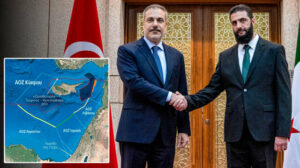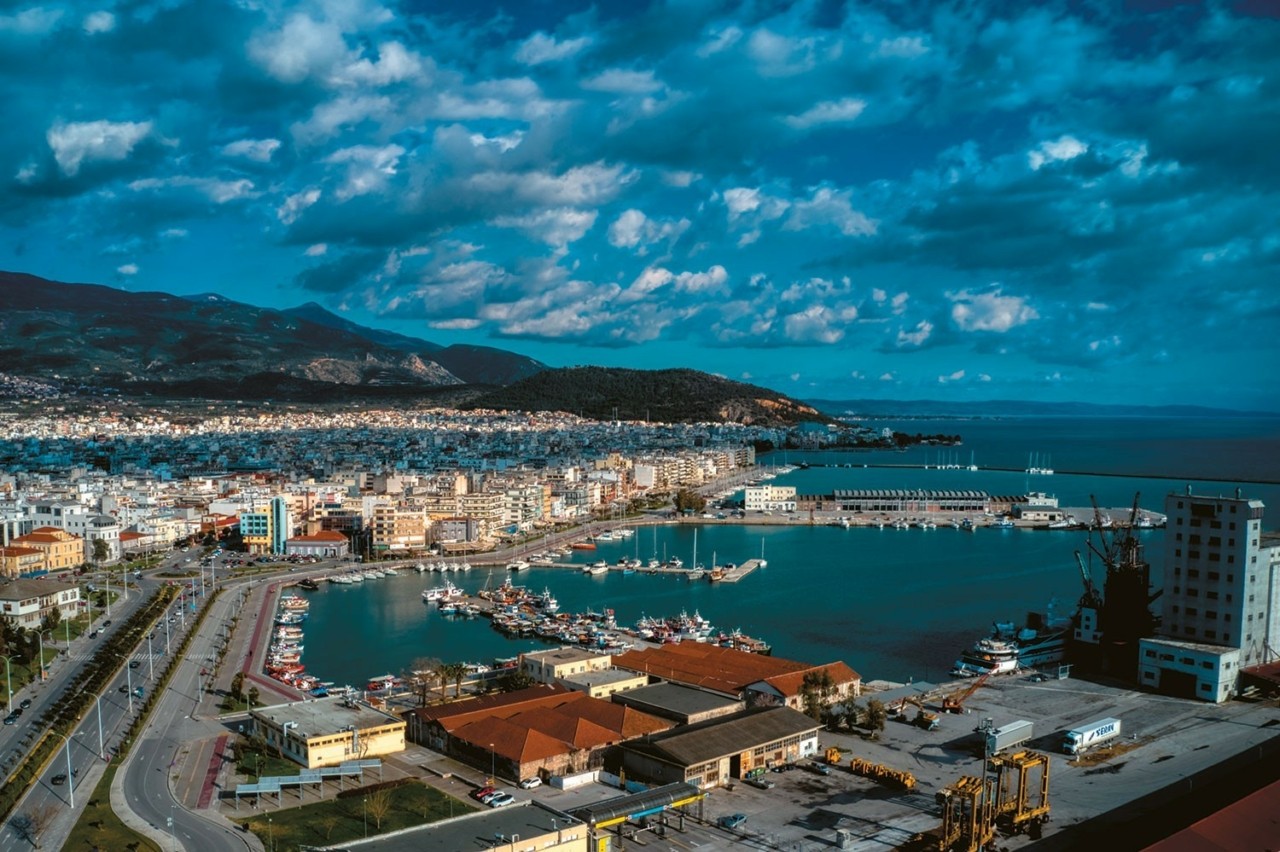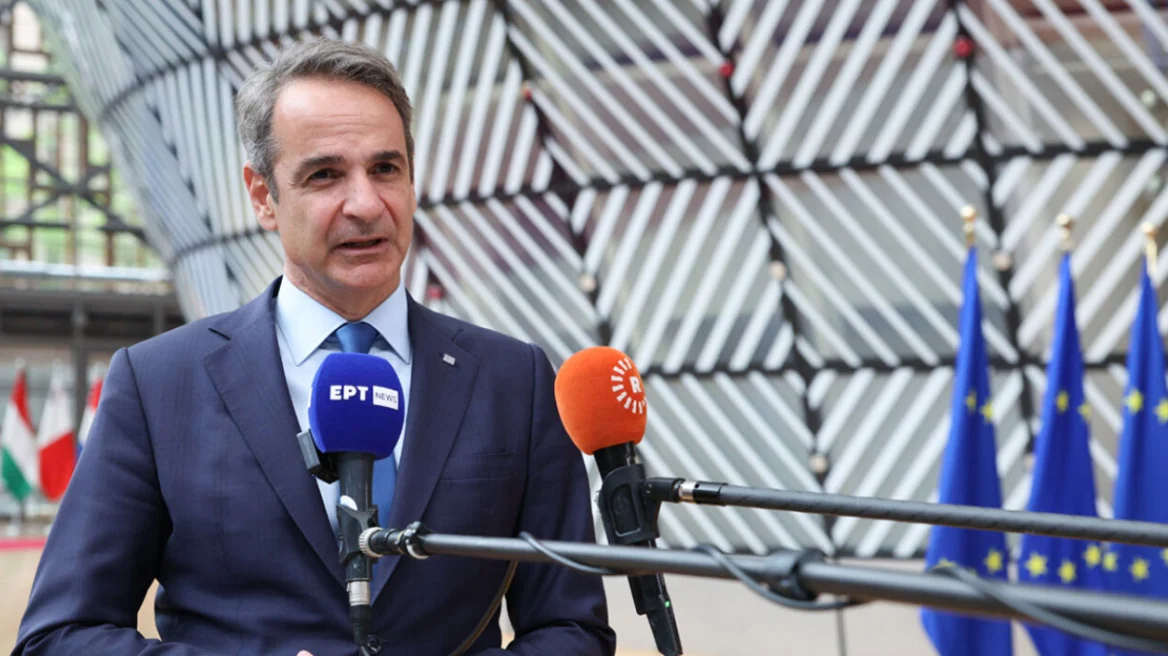The governments of Greece and Cyprus are on high alert as Turkey is reportedly in negotiations with the new Syrian government over the delimitation of an Exclusive Economic Zone (EEZ), according to reports in Turkish media.
The news raises grave concerns about the implications it may have for the wider geopolitical stability of the region following the illegal Turkish-Cypriot memorandum and Ankara’s attempts to appropriate the entire area of the wider northern eastern Mediterraneanby “erasing” the rights of Greece and Cyprus.
According to the English-language edition of Hurriet, the agreement is part of a broader plan of action that includes maritime demarcation and the reconstruction of Syria after the overthrow of the Assad regime. Turkish Transport Minister Abdulkandir Uraloglu said the deal would cover the demarcation of maritime jurisdictional zones and the restoration of key infrastructure in Syria, including airports, railways, roads and telecommunications.
Turkey, ignoring any notion of International Law, is trying to exploit the change in Syria in order, as it did with Libya, to promise further quid pro quo in case of an agreement.
Retired Admiral Jihad Yajji had stated this during a television appearance: “We can sign an agreement with Syria to define an Exclusive Economic Zone (EEZ), as we had done with Libya. This agreement will give 12% more space to Syria than the proposal of the Greek Cypriot Administration of Southern Cyprus (sic). So this will give more EEZ to Syria. This agreement will give Turkey a gain of 4,000 sq km and will spoil the Greek Cypriot plan. Thus, a Turkish shield will be created in the East as a Turkish shield was created in the West with the Libya agreement. This government must do this. This is not the time to hesitate and think about what one or the other will say. Turkey should not be afraid of the Greek Cypriots.”
“In the Eastern Mediterranean the climate has changed in Turkey’s favour […] We need to sign an EEZ agreement with Syria. It will change the situation,” Aydin Hassan had written, for his part, in Milliyet, citing analysts.
The same sources on the Turkish side said that the issue of joint exploitation of deposits in the eastern Mediterranean is currently on the table and released the following map. On this map in green there is a delineation for Ankara of the EEZ as it results from the Turkey Memorandum and in light brown parallel to the Turkish coastline the EEZ with Syria is defined.
Turkey has already initiated the transfer of a delegation from the Ministry of Energy to Syria for energy cooperation discussions, including the transfer of electricity to meet the country’s energy shortages. The prospect of signing such an agreement is causing strong reactions in Greece and Cyprus, which have expressed concern about a possible violation of international maritime law.
Cypriot government spokesman Konstantinos Letibiotis told the Cyprus News Agency (CYPE) that they are closely monitoring developments, noting that any attempt to challenge the sovereign rights of the Republic of Cyprus constitutes a violation of international law. He also stressed that the President of Cyprus, Nicos Christodoulides, is in close cooperation with the Greek Prime Minister, Kyriakos Mitsotakis, while the leaders of the European Union have already been informed.
Similarly, Greek diplomatic sources stressed that the transitional situation in Syria does not legitimize the conclusion of international agreements on EEZs. “Greece is in constant communication with Cyprus, neighbouring countries and the European Union to prevent the creation of fait accompli,” Greek Foreign Ministry sources said.
Political reactions in Greece have been strong. PASOK Foreign Affairs Minister Dimitris Mantzos called the possible agreement a “flagrant violation of international law” and urged the government to take immediate steps to prevent a fait accompli.
Sufficient risk
The risk is of course real and Nicosia and Athens are monitoring the moves and initiatives taken by the Turkish side, as was the case in the past when there was an official approach by Ankara to the Palestinian Authority for such an unorthodox and illegal demarcation, which Mahmoud Abbas did not dare to do.
Athens and Nicosia are taking precautionary steps to avoid a repeat of the 2019 surprise attack. Asked about these scenarios after the summit, Kyriakos Mitsotakis recalled that the Turkish-Syrian Memorandum is invalid and that at the moment there are only media reports about a possible Turkey-Syria deal, but both he and Cyprus President Nikos Christodoulides have informed their counterparts.
Nicosia, according to our information, has taken pre-emptive action and has raised the issue with forces in direct contact with HTS and the new authority in Damascus.
Transitional Space
In Syria it is obvious that there will be a long transition period until basic stability and legitimacy is restored and there is a government that is recognized by the UN and also has the right to “franchise” with third parties.
Even then, however, a legitimate Syrian government will have many other priorities before it will deal with meeting one of Turkey’s demands, such as the demarcation proposed by retired admiral Jihad Yayichi.
Such an initiative would bring the Damascus government into direct conflict with the EU, as it would be an attempt to usurp part of a member state’s EEZ and would obviously lead to sanctions and the cutting off of valuable aid that the new regime will need in order to survive.
The part which, according to Yayichi’s alchemy, will be christened “Turkish EEZ” is a small area of the Cypriot EEZ which is currently not under the control of the Republic of Cyprus and at the same time will also eliminate the “maritime zones” of the pseudo-state for whose rights Turkey is supposedly concerned.
Ask me anything
Explore related questions





